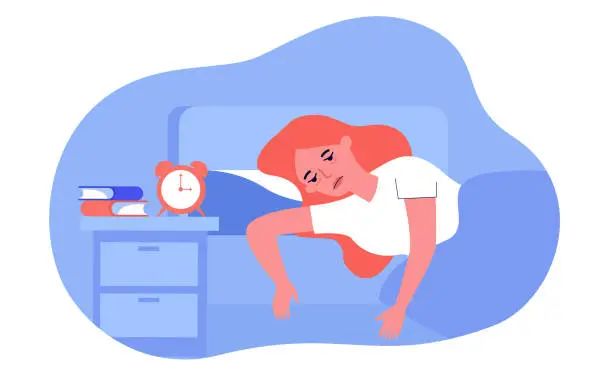By Wai Phyo Hein | 31st July, 2022
We all know that sleep is important, yet most students suffer from low quality sleep and an interesting phenomenon called Sleep Inertia. Read on to find out the dangerous side-effects of bad sleep!
⛅ In the morning, we experience dizziness as soon as we get up from bed. Yes, we get enough sleep (from 6 to 8 hours) but still, we are not feeling fresh in the morning despite a long rest. Instead, our cognitive mind is controlling us to just lie on the bed. 😵💫 This condition is due to a phenomenon called Sleep Inertia.
What Is Sleep Inertia? 🤔

➡️ Sleep inertia is the feeling of grogginess, disorientation, drowsiness, and cognitive impairment that immediately follows waking. It usually lasts from 15 to 60 minutes but some people experience it for hours after waking.
Until now, scientists cannot find the biological reason for sleep inertia but they assume it might be the protective mechanism of our body — a mechanism that helps maintain the body’s sleep from unwanted waking.
However, as we already know, sleep inertia can severely affect our productivity and daily life. Nobody wants their morning to feel dizzy and sleepy regardless of enough sleep. For students, it is worse. We have morning classes and routines that we have committed to. There might be activities that require our full attention to be paid. Given the sleep inertia in the morning, it is undeniable that students might have every morning as a disaster.
There are Solutions! 🥱
Some treatments can mitigate sleep inertia.

- 😪💤Napping — those who take napping for about 20 minutes in the afternoon will experience fewer effects of sleep inertia. Moreover, napping helps students have better memorization and creativity. However, we need to be careful that it must not exceed 30 minutes since it can boost the sleep inertia effects.
- ☕🍵Caffeine Intake — Consuming caffeinated drinks in the morning can also help our body stay awake. However, it might take a little longer to show its effects (To be exact, between 30 to 60 minutes).
- 🔄Sleep Cycle — To feel fresh in the morning, it is extremely important to have a full sleep cycle. A sleep cycle generally lasts 90 minutes. Therefore, it is hypothetically better to sleep for 6 hours to 7 and a half hours a day (4 to 5 sleep cycles). Waking up during the intervals makes us dizzy which is the same effect as sleep inertia.
- 🌡️Temperature adjustments — Sleeping in a room with a high temperature can result in fatigue. It is better to sleep in a room with temperature control so that when we wake up, our mornings will be fresh.
Usually, it is not compulsory to consult with doctors for sleep inertia since it is one of the natural phenomena that lasts for about an hour and can disappear naturally. However, if we feel sleep inertia throughout the whole day, it is better to have a consultation with experts. They will make us take part in a sleep study called polysomnography. In this way, they will be able to determine the underlying sleep orders and the impacts of the sleep inertia we are currently facing.

Mornings are important for any high school student. We need to be fresh, and active from the start of the day. Our mornings should be spent actively: not with sleepy eyes. Only if we have a productive morning, we will then be able to pass the rest of the day with confidence.





Forgot password?
Close message
Subscribe to this blog post's comments through...
Subscribe via email
SubscribeComments
Post a new comment
Comment as a Guest, or login:
Connected as (Logout)
Not displayed publicly.
Comments by IntenseDebate
Reply as a Guest, or login:
Connected as (Logout)
Not displayed publicly.